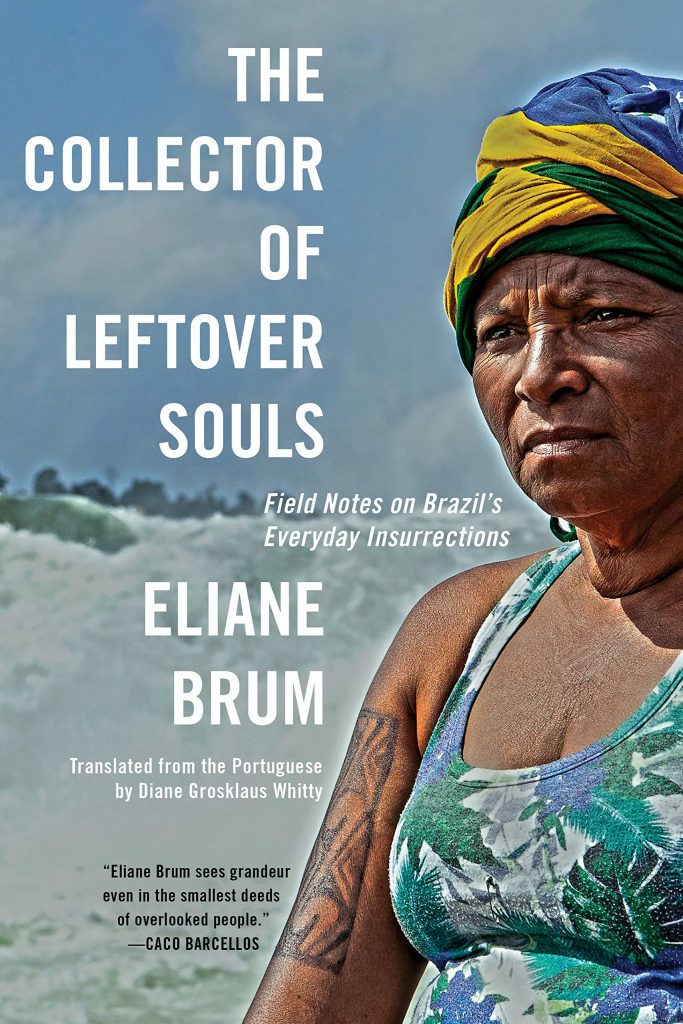By JJ Amaworo Wilson

Brazil is in peril. Latin America’s biggest country is being led by a dangerous buffoon, Jair Bolsonaro. The Trump of the Tropics is blundering his way to the graveyard and taking his 211 million countrymen with him. On March 24th he called covid 19 a gripezinha (a little flu). On March 29th – the day after the Health Minister recommended social isolation – he strolled, mask-free, through Brasilia, attracting crowds. He called the measures recommended by scientists “hysteria” and opposed lockdown on the grounds that “if the economy collapses, my government collapses.”
Half a million positive cases and 27,000 deaths later, the economy is in free-fall, the government is on its third health minister in five weeks (the first two couldn’t work with Bolsonaro), the dead are being whisked away in refrigerator trucks to mass graves in Manaus, hospitals are at breaking point, and so is Brazil.
Given that The Collector of Leftover Souls: Field Notes on Brazil’s Everyday Insurrections was published before coronavirus had entered the public’s lexicon, the book may appear to represent a happier, easier time. But the issues it addresses explain why certain parts of Brazil – the Amazon region, the impoverished northeast, and the favelas everywhere – have been hit hardest by the pandemic.
Each of the seventeen essays in the collection involves the author, journalist and novelist Eliane Brum, visiting Brazil’s peripheries, where the poor and the marginalized reside. She witnesses their grief and their pleasures, and reflects on the violence and inequality that besets the nation. Among those she profiles are entrepreneurial prostitutes in a mining town, an 85-year-old hoarder whose house has become a junk-packed cave, a street performer who eats glass, and residents of an old people’s home who arrive for a short sojourn but soon realize they will depart only in a box.
Brum reveres the act of listening. In the introduction she says “more important than knowing how to ask a question is knowing how to listen to the answer.” With an asbestos-stricken worker, she listens not just to his answers, but to the “awful sound he made to keep himself alive.” The noise of his breathing will be with him, and her, until the very end.
The woes of Brazil’s underclasses, then, are presented through the stories they tell. Along with stories, Brum has a knack of eliciting the perfect quote, the line that captures a life. The factory worker who was poisoned for decades tells her, “I am made of asbestos.” An airport baggage handler who has never flown fantasizes about sitting in first class: “I’d sit there like a shark, and smoke a nice fine cigar.” A midwife who has birthed over two thousand children mourns every day the three she lost: “It’s a child missing from the community.”
While the collection is shot through with tragedy, at times it’s also comic. Many of the characters Brum meets are hustlers, illiterate stoics imbued with wisdom. And the prose has an antic, almost surrealist, energy. The essays are full of bric-a-brac, arcane rituals, and droll nicknames.
Overall, this is a superb chronicle of marginalization, a collage depicting a continent-sized country still finding its way nearly 200 years after independence. And we know that long after Bolsonaro and the virus are gone, the inequalities and suffering will remain, relieved only by the people themselves and their capacity to laugh into the abyss.
[An earlier version of this review appeared in The New York Journal of Books, February 2020.]
JJ Amaworo Wilson is a German-born, British-educated debut novelist. Based in the U.S., he has lived in 9 countries and visited 60. He is a prizewinning author of over 20 books about language and language learning. Damnificados is his first major fiction work. His short fiction has been published by Penguin, Johns Hopkins University Press, and myriad literary magazines in England and the U.S.




